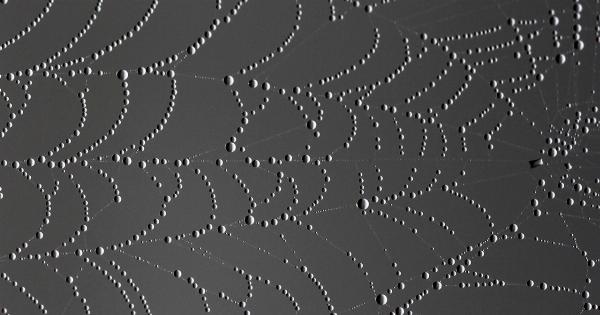Sigmund Freud, the renowned Austrian psychoanalyst, developed numerous theories that continue to shape our understanding of psychology and human sexuality.
One of Freud’s most controversial ideas is the concept of “penis envy.” This term, coined by Freud, refers to a psychoanalytic theory that suggests women experience feelings of inadequacy and inferiority due to their lack of a penis. In this article, we will delve into the meaning of penis envy in Freudian theory, exploring its origins, implications, and criticisms.
Origins of Penis Envy
The notion of penis envy stems from Freud’s psychosexual development theory, which posits that individuals progress through different stages of psychosexual development during childhood.
According to Freud, a key stage is the phallic stage, which typically occurs between the ages of three and six.
During this phallic stage, children become aware of their genitals and experience pleasurable sensations when exploring them.
Freud believed that during this period, both boys and girls develop an attachment to their mothers, whom they view as the primary caregiver and source of pleasure.
Freud observed that boys develop a strong attachment to their penises and develop a desire for their mothers. This is known as the Oedipus complex, where boys undergo a process of sexual desire towards their mothers and perceive their fathers as rivals.
Freud proposed that boys resolve the Oedipus complex by identifying with their fathers, internalizing their values, and adopting socially acceptable behaviors and roles.
In contrast, according to Freud, girls experience a psychological conflict during the phallic stage. They realize they lack a penis and perceive it as a significant loss.
This realization, according to Freud, leads to feelings of envy and resentment towards boys and their fathers. Freud referred to this as “penis envy.”.
The Implications of Penis Envy
Freud suggested that penis envy influences various aspects of a woman’s life, contributing to her personality development and shaping her desires and behaviors.
He claimed that women experience a deep-seated desire to obtain a penis, which can manifest in various ways.
Firstly, Freud argued that penis envy might motivate women to seek attention from men and desire relationships in an attempt to compensate for their perceived lack.
This desire for male attention, according to Freud, stems from an unconscious yearning to obtain what is considered socially and culturally significant – the phallic symbol, the penis.
Furthermore, Freud believed that penis envy plays a significant role in a woman’s career choices and aspirations.
He suggested that women may develop a drive to achieve success and recognition in traditionally male-dominated fields as a compensation for their perceived inferiority. This theory aligns with Freud’s broader view that women are motivated by a desire to overcome their inherent biological disadvantages.
Freud also maintained that penis envy affects a woman’s psychosexual development, particularly her relationships and sexual behaviors.
He proposed that women experience a sense of incompleteness and dissatisfaction in their sexual experiences, as they lack the organ that traditionally brings pleasure and fulfillment. Freud believed that this lack could lead to difficulty in achieving sexual satisfaction throughout adulthood.
Criticisms of Penis Envy
Freud’s concept of penis envy has faced numerous criticisms since its introduction.
Many critics argue that it is a sexist and reductionist theory that simplistically attributes women’s experiences and desires solely to the absence of a penis. The emphasis on biological determinism and binary gender roles perpetuates and reinforces harmful gender stereotypes.
Additionally, Freud’s theory received criticism for its lack of empirical evidence. The psychoanalyst based his assertions primarily on case studies and personal observations rather than rigorous scientific research.
Critics argue that this limited basis weakens the credibility of the theory and its generalizability to diverse populations.
Moreover, modern psychologists and feminists assert that Freud’s theory neglects other significant aspects of female psychology and sexuality.
The theory does not adequately account for the complexities of women’s experiences, desires, and identity formation, emphasizing a narrow perspective focused on a singular aspect of female anatomy.
The Evolving Understanding of Gender and Sexuality
As our understanding of gender and sexuality has evolved, so too have perspectives on Freud’s concept of penis envy.
Contemporary theories highlight the importance of social and cultural factors in shaping gender identity and sexuality, challenging the idea that biology alone determines individuals’ experiences and desires.
Contemporary psychologists argue that individuals’ experiences of gender and their relationships with their bodies are diverse and multifaceted, extending beyond a simplistic understanding of anatomical differences.
These theories emphasize the importance of considering individual experiences, identities, and social contexts when exploring gender and sexuality.
In conclusion, Freud’s theory of penis envy represents a pivotal notion in psychoanalytic thought.
While it has shaped early understandings of female psychology and sexuality, it has faced substantial criticism for its reductionism, lack of empirical evidence, and reliance on gender stereotypes. Modern perspectives offer more inclusive and nuanced understandings of gender and sexuality, emphasizing the complexities and diversity of individual experiences and identities.



























